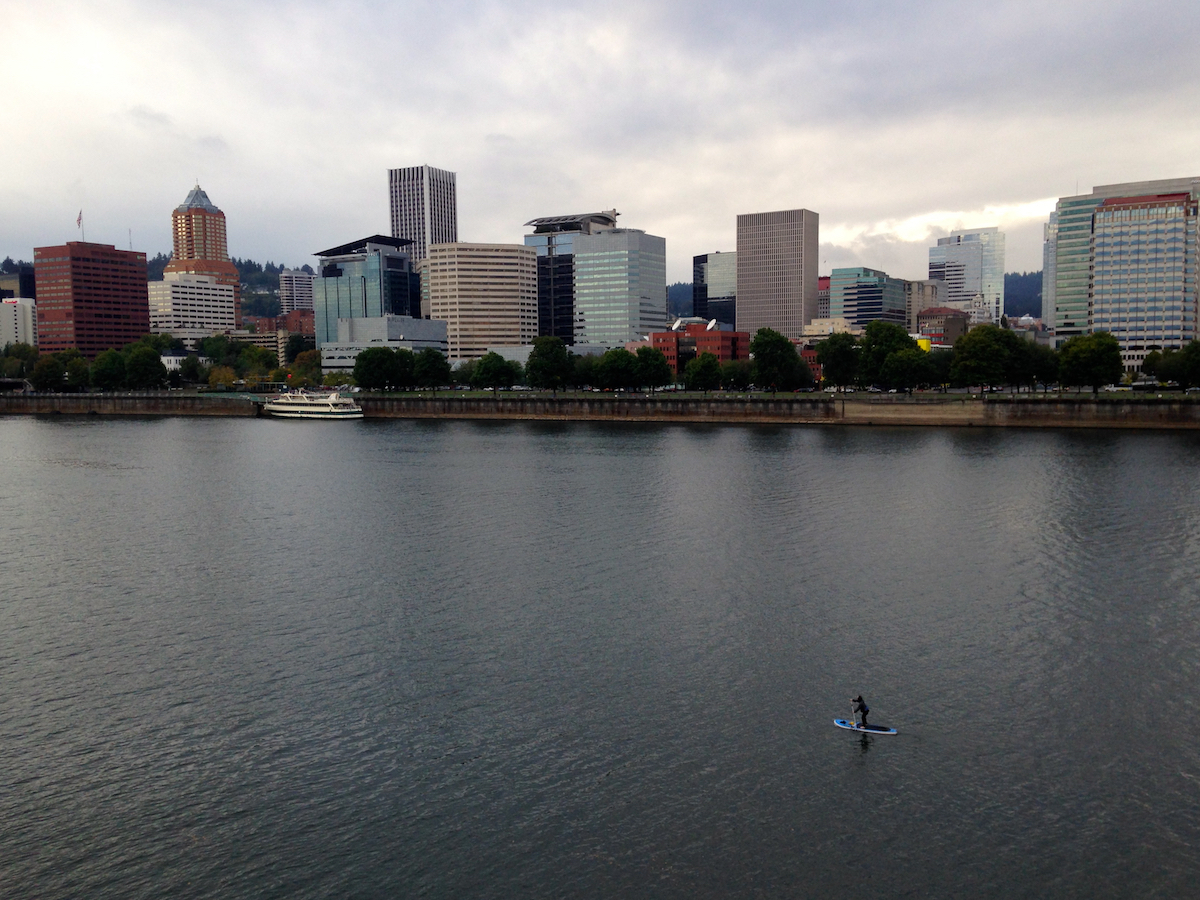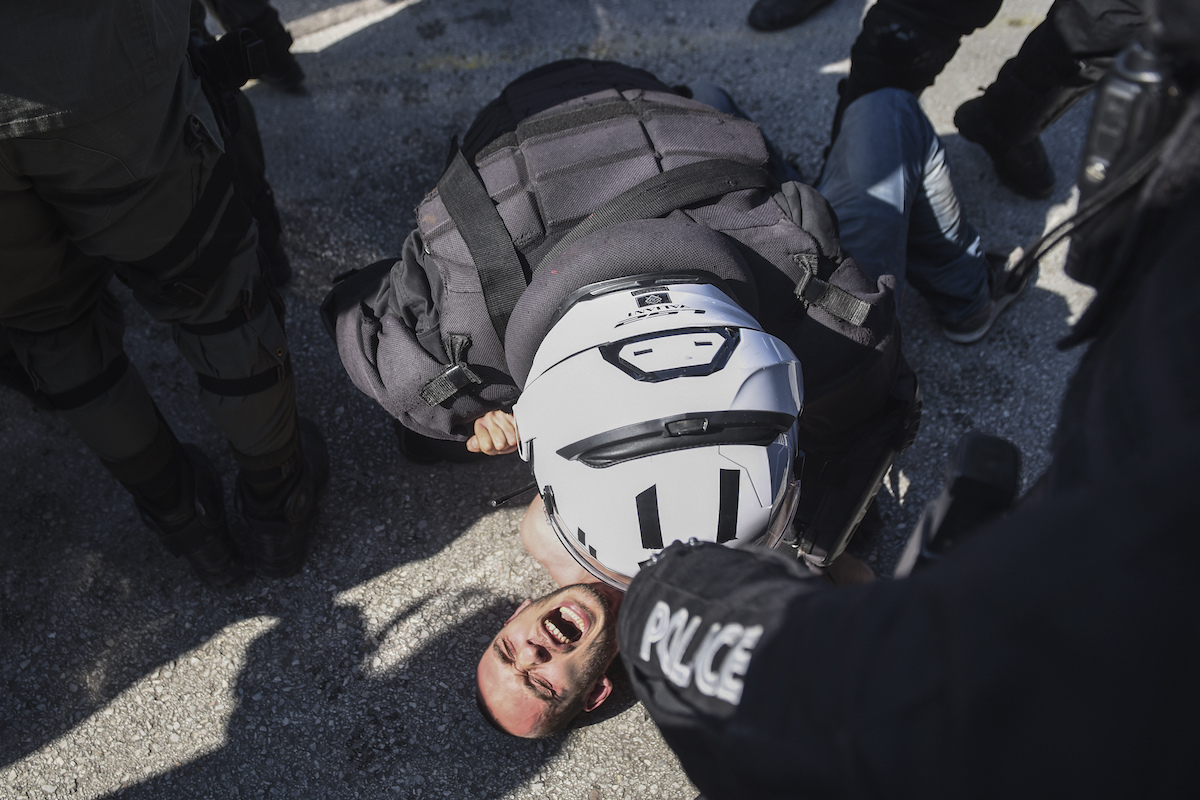Did you know Oregon has a state song? I had no idea until I read an article from OPB about the song and its origins. The song, “Oregon, My Oregon,” was written by songwriters Henry B. Murtagh and John A. Buchanan for a contest sponsored by the Society of Oregon Composers in 1920, and the state legislature adopted it as the official state song in 1927, which it has remained ever since. Its lyrics praise the settlers of Oregon, the beauty of the Pacific Ocean and the fair weather of the state. It’s also incredibly racist.
Our state song needs a rewrite. There’s really no way around it. For anyone who’s never heard the song before—which I’m assuming is most people—these are the lyrics:
Land of the Empire Builders, Land of the Golden West;
Conquered and held by free men, Fairest and the best.
On-ward and upward ever, Forward and on, and on;
Hail to thee, Land of the Heroes, My Oregon.
Land of the rose and sunshine, Land of the summer’s breeze;
Laden with health and vigor, Fresh from the western seas.
Blest by the blood of martyrs, Land of the setting sun;
Hail to thee, Land of Promise, My Oregon.
Hoo boy, there’s a lot to unpack there. After the murder of George Floyd and the protests for racial justice over the summer, many cultural institutions (statues, TV shows, etc.) were reexamined in order to root out racial bias. In October of last year, executive director of the Oregon Historical Society Kerry Tymchuk did the same thing with “Oregon, My Oregon.”
In an interview with Portland Monthly, Tymchuk broke down some of the most problematic lyrics in the song, including “conquered and held by free men,” which refers to white settlers who “conquered” the indigenous people of Oregon; it could also be referring to racist laws that forbade Black people from living in the state, as Oregon was “held” by white, “free” men. And of course, the word “empire” conjures up images of colonization and subjugation, which is likely what the songwriters were going for.
The song calls the men who “conquered” Oregon the “fairest and the best;” does that mean “fair and just, or fair as in light-skinned?” Tymchuk asks. The same goes for “blest by the blood of martyrs,” which is almost certainly not referring to the Native people who were killed by settlers, but instead to those settlers themselves.
Finally, the song calls Oregon a land of “rose and sunshine, land of the summer’s breeze.” One of Oregon’s most well known qualities is the deluge of rain and dreary weather we get every year. How did the songwriters completely ignore that?
Oh, and also, the song lyrics rhyme “Oregon” with “gone,” like “Or-ee-gon.” Unforgivable.
So why does any of this matter? Because our state song is steeped in Oregon’s racist history, and every time it’s played, it resurfaces white supremacist rhetoric from a century ago. In the 1920s, when the song was written, the Ku Klux Klan’s biggest chapter west of the Mississippi was right here in Oregon; with a population that was 95% white and majority Protestant, Oregon was the perfect place for the Klan to seek influence.
The Klan quickly recruited new members for its “Invisible Empire” in Medford, and from there expanded into the rest of Oregon. The KKK had considerable influence on state and local politics, and the successful passage of the 1922 Oregon School Bill after lobbying from the Klan showed their true might. And because of Klan influence, Democratic candidate Walter Pierce was able to win the governorship in 1922. The Klan, eager to distance itself from overtly racist rhetoric that might alienate the public, instead adopted a platform of “patriotism, social conservatism and social order.”
This is the environment “Oregon, My Oregon” was written in. Its lyrics referencing the “Empire Builders,” “the blood of martyrs” and “fairest and the best” hew to Klan talking points a little too close for comfort. I have no reason to believe that Messrs. Murtagh and Buchanan were Klan members themselves; but as should have become clear after this year’s protests, one does not have to be racist to uphold a racist system.
It’s time to change Oregon’s state song. I don’t know what a good replacement would look like, but I suppose that’s not really up to me. The songwriting contest they held in 1920 was certainly not inclusive by any stretch, so why don’t we redo it? Let’s have a competition where anyone from Oregon can volunteer to write a new song. And before it’s approved, let’s make sure to get approval from everyone, not just white Protestants. Because honestly, at this point, almost anything would be better than “Oregon, My Oregon.”




No matter what you do or say these day someone will object to it. I’m sick to death of this racist crap